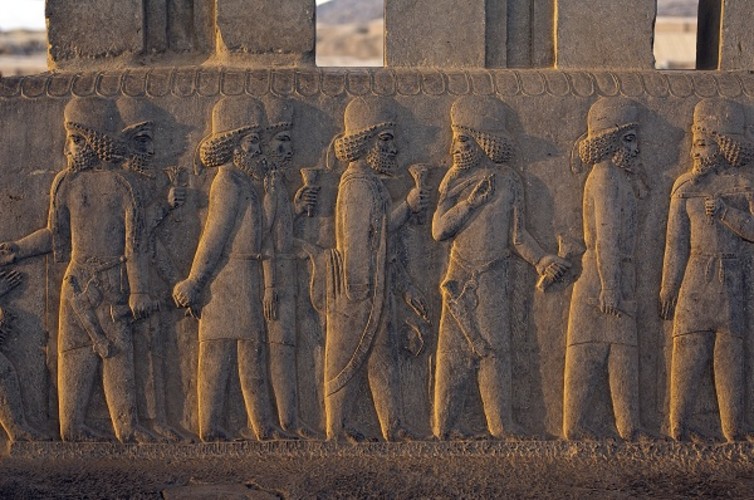 The Persian heartland has long been the centre of one of the world’s oldest continuous major civilizations, exuding regional power and cultural production, with historical and urban settlements dating to 4000 BC. Today, much of the public image of Iran is defined by its status as an Islamic Republic, but Iranian culture runs much deeper and is much more multifarious than its political title implies. Therefore, in order to fully understand the role Iran plays in current world events it is necessary to revisit its roots: its culture, art, language and history.Held over four evening classes, this short course does not require any knowledge of Persian language or history. The program includes light refreshments during a break, as well as further reading suggestions and handouts during each session.
The Persian heartland has long been the centre of one of the world’s oldest continuous major civilizations, exuding regional power and cultural production, with historical and urban settlements dating to 4000 BC. Today, much of the public image of Iran is defined by its status as an Islamic Republic, but Iranian culture runs much deeper and is much more multifarious than its political title implies. Therefore, in order to fully understand the role Iran plays in current world events it is necessary to revisit its roots: its culture, art, language and history.Held over four evening classes, this short course does not require any knowledge of Persian language or history. The program includes light refreshments during a break, as well as further reading suggestions and handouts during each session.
Wednesday 9 November: History & Geography
Despite the common blanket terms ‘Shi’a’ and ‘Persian’, Iranian identity is actually quite complex and engages with a number of religious, geographical and linguistic traditions. This session will outline the key pre-Islamic and post-arrival of Islam historical moments with which these elements interact and intersect in the creation of contemporary Iranian identity.
Presenter: Dr Mammad Aidani
Wednesday 16 November: Mythology
Myths play a crucial part in Iranian culture and our understanding of them is increased when we consider them within the context of Iranian history. Beginning with the founders of Iranian myth and poetry this session will outline the traditional tales and stories of ancient origin, which involve supernatural beings.
Presenter: Dr Mammad Aidani
Wednesday 23 November: Poetry, Painters and Politics
The Safavid dynasty, founded in 1501, laid the groundwork for the unified identity of the modern state. Successive rulers became noted patrons of the arts particularly that of the luxurious, illuminated and illustrated manuscripts that contained the well-loved epics and romances of the great Persian poets. This session will trace the cultural commodity of the Persian book arts and then focus on specific examples of great poets of the past.
Presenters: Dr Susan Scollay and Dr Mammad Aidani
Wednesday 30 November: Artistic Representations of Modern Iran
The final week looks at the artistic output of the Qajar dynasty (1785–1925), a pivotal period in the making of Iran’s modern history. This is followed by a closer look at two leading writers and poets in the hope of understanding the conflict between traditionalism and modernity that has dominated much of Iran’s cultural identity in the 20th and 21st centuries.
Presenters: Dr Susan Scollay and Dr Mammad Aidani
Time: 6.15-8.15pm
Cost: Individual session: $60 / $50 University of Melbourne Alumni, Students & Staff
Series pass: $230 / $190 University of Melbourne Alumni, Students & Staff
For more information and to book visit the website: http://arts.unimelb.edu.au/news/details?event=7586
